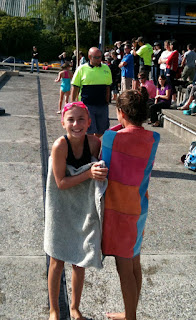Scenario: The school developed a digital environment in Year’s 7 and 8 as a response to student losses to Intermediates in Year 6. We initially had 1 pod of 16 computer in use across the school. Funding was initially agreed to by the Friends of Saint Paul’s but the $11,000 commitment each year was too much for them to carry. The community were then asked to fund the pod and the cost was divided up amongst all families on a pay-for-use basis. Year 7/8 children has access during all their ‘academic’ time, so pay $150 a year. There has been an excellent response to date with up to 90% of parents paying this as part of their parent contribution. With additional support from the Parish we had two pods for three years. When the Parish funding stopped we moved to lease ipads for two years so that we could continue with the same number of machines at the same expense for the community. We are involved in a Ministry-funded contract over three years to develop home-school partnerships. Data projectors were purchased for most rooms with support from the Canterbury Community Trust. Students and teachers have come to rely on computers in a myriad of ways for teaching and learning. Anecdotally and in surveys we are seeing student engagement, particularly at a the Year 7/8 age where engagement rates usually fall away.
The Issue
There is no doubt that there is change taking place on a huge scale because of the new technologies. A collapse of the manufacturing sector closely followed by retailing sector and with it loss of opportunities for employment. As a result the increasing requirement is for students with collaborative, creative, innovative and entrepreneurial skills to build a new economy.
The desire to develop these skills are expressed clearly in our strategic plan.
We expect our students to be active, creative, engaged and inquiring learners
( Strategic Plan 2009)
There are two important parts to their development. The first and most important is a new way of teaching. The Ministry have funded a three year professional development project in the region. This has teachers currently creating class blogs to showcase the students learning to their communities and the world.
The school’s responsibility is to provide the best infrastructure we can for teachers to get on with connecting their students with a quickly changing world.
Conclusion
If our vision is to provide the best in the way of infrastructure I believe we have to make our goal 1 student to 1 device. However there are conditions that are part of our Catholic Character:
- The opportunities offered to some students must be offered to all ( including Year groups)
- We make provision for those who can’t pay
This is an ambitious goal that may take some time to achieve. If we agree that we want to give our children the best chance in an increasingly technological world we must aim high. A decile 1 school with a poor transient Polynesian population in Auckland is close to achieving this goal.
There are many difficult issues to be resolved. If we know where we are going our path will be easier to follow.
Ideas for Implementation
- This document to be canvassed among teachers, board and if we agree on a clear vision, the community.
- A public meeting to present our vision and what it might look like and get their feedback
- Start planning for new pedagogy.
Comments and Ideas from the Management Team
- We agree in principle.
- We agree that the vision should dictate our decision making.
- Professional Development around pedagogy is key to the process.
- What does it mean for the nature of schooling at Saint Paul’s? ( Is it the end of the pencil and books? There will still be a need for the physical act of writing)
- It is happening. Could it be an optional item on the stationery list in 2012 ?
- The staff need to discuss and develop their pedagogy in more depth, perhaps with the support of someone like e-time.
- Our community would need to be presented with a clear idea and vision of how it might look for their children.
- Year 5/6 need 5 computers available all the time in class now.
- There was a doubt expressed about the ability for a digital environment to retain Year 6 into Year 7. ( there is already talk of movement to other schools in the current Year 6)
- The need for access is greater from the senior end tailing off down into junior school. (Should this be the case?)
ICT Parent Response from 75 families:
We have just under 50% support for increased payment and the purchasing option.


